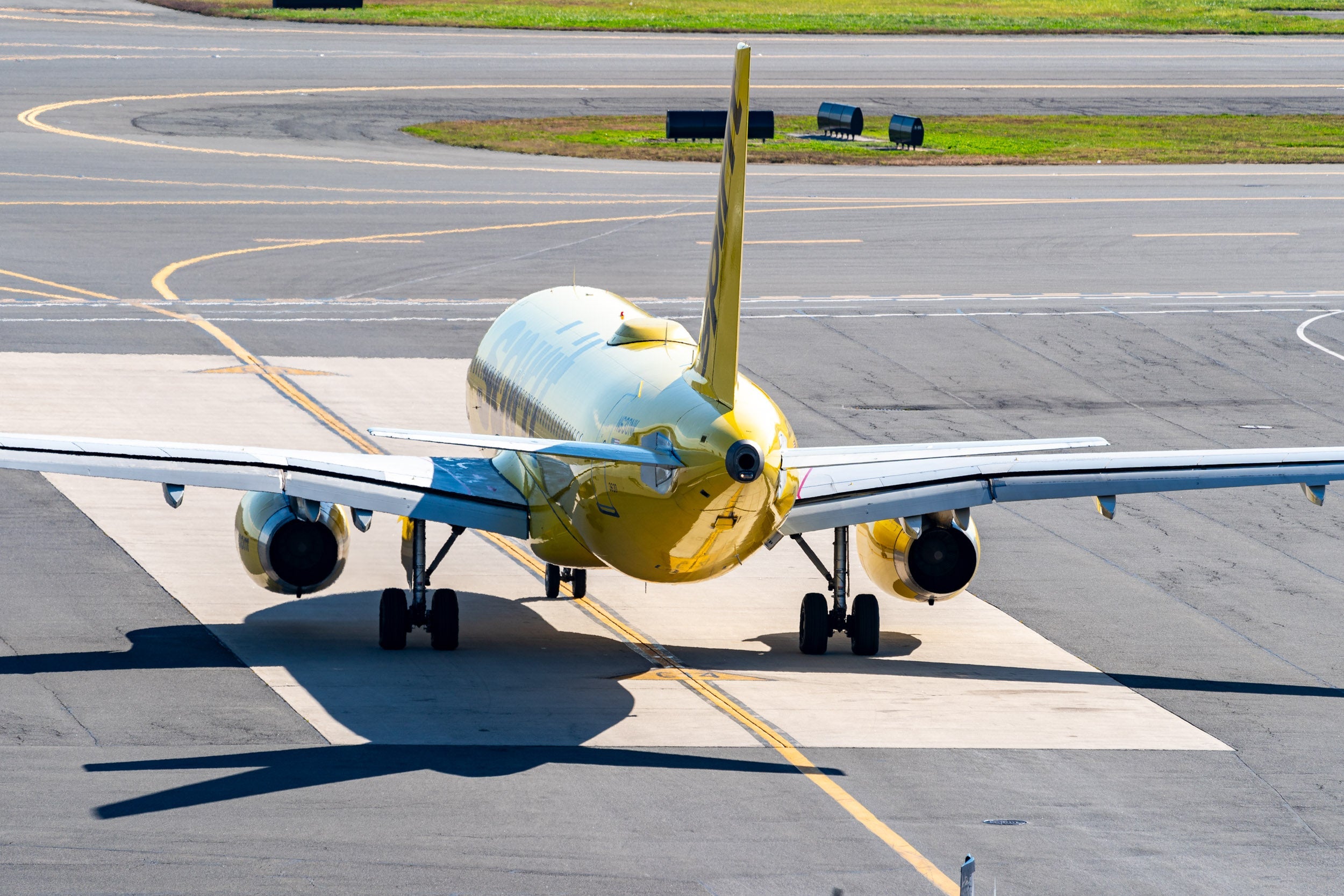‘Misguided narrative’: Spirit Airlines CEO lashes out at bankruptcy speculation
Don't listen to the naysayers; Spirit Airlines is here to stay.
That was the message from CEO Ted Christie on Thursday as he vociferously rejected suggestions that Spirit could be on track to file for bankruptcy and perhaps even dissolve.
"This misguided narrative has been advanced by an assortment of pundits," Christie said at the top of the airline's fourth-quarter earnings call Thursday, during which Spirit reported a loss of $184 million for the period. "However, back in the real world, we are focused on facts."
Speculation over a possible bankruptcy emerged almost immediately following a ruling by U.S. District Judge William G. Young that blocked a merger between Spirit and JetBlue.
Under the terms of the merger, JetBlue would acquire Spirit and absorb its airplanes, employees and other assets under its own brand. The airlines are appealing the decision, although JetBlue has indicated it may seek to terminate the merger agreement.
During a November antitrust trial in Boston, JetBlue argued that it needed Spirit's aircraft and crew members in order to supercharge its growth to a size that would allow it to compete with bigger U.S. carriers. Spirit said that it was in a precarious financial position and could no longer compete effectively with its particular ultra-low-cost business model.
On Thursday, however, Christie said Spirit was making changes to its business that would put it on track to return to profitability for the first time since the start of the COVID-19 pandemic.
"Liquidity is always king and we have enhanced our levels to give us the necessary flexibility to successfully close with Jet Blue or to pursue our stand-alone plans," Christie said.
Last month, Spirit completed a "sale and leaseback" of 25 aircraft, a maneuver in which it sold the airplanes to a lessor in order to raise cash and eliminate debt, and then leased them back to continue using them. The airline netted around $419 million in cash.

Over the coming months, Spirit plans to make changes to its network construction, the times of day it operates flights (peak versus off-peak), and its market and geographic concentration, Christie said.
Nevertheless, Christie said that Spirit plans to continue to aggressively appeal the decision blocking the merger.
"This case should never have been brought. It's beyond absurd for the government to claim a victory for the American consumer," Christie told investors. "In fact, it's ridiculous."
Previous mergers that the government approved have left the U.S. airline industry as an oligopoly, Christie said, with just a few larger companies at the top controlling the "vast majority of the market." American Airlines, Delta Air Lines, United Airlines and Southwest Airlines control roughly 80% of the U.S. market.
Related: Spirit saw Northeast Alliance as biggest threat to JetBlue merger, testimony reveals
"The government continues to do nothing to address the anti-competitive structure of our industry," Christie said. "Instead, they have just engaged in an expensive and long litigation process to block the merger of the sixth and seventh largest airlines that, when combined, would still be half the size of the fourth."
"Nonetheless, you can rest assured that the Spirit team is 100% clear and focused on the adjustments we are currently deploying and will continue to make throughout 2024 to drive us back to cash flow generation and profitability," Christie added.
The appeal is scheduled for June in the Boston-based 1st U.S. Circuit Court of Appeals.
TPG featured card
at Capital One's secure site
Terms & restrictions apply. See rates & fees.
| 5X miles | Earn 5X miles on hotels, vacation rentals and rental cars booked through Capital One Travel |
| 2X miles | Earn unlimited 2X miles on every purchase, every day |
Pros
- Stellar welcome offer of 75,000 miles after spending $4,000 on purchases in the first three months from account opening. Plus, a $250 Capital One Travel credit to use in your first cardholder year upon account opening.
- You'll earn 2 miles per dollar on every purchase, which means you won't have to worry about memorizing bonus categories
- Rewards are versatile and can be redeemed for a statement credit or transferred to Capital One’s transfer partners
Cons
- Highest bonus-earning categories only on travel booked via Capital One Travel
- LIMITED-TIME OFFER: Enjoy $250 to use on Capital One Travel in your first cardholder year, plus earn 75,000 bonus miles once you spend $4,000 on purchases within the first 3 months from account opening - that’s equal to $1,000 in travel
- Earn unlimited 2X miles on every purchase, every day
- Earn 5X miles on hotels, vacation rentals and rental cars booked through Capital One Travel
- Miles won't expire for the life of the account and there's no limit to how many you can earn
- Receive up to a $120 credit for Global Entry or TSA PreCheck®
- Use your miles to get reimbursed for any travel purchase—or redeem by booking a trip through Capital One Travel
- Enjoy a $50 experience credit and other premium benefits with every hotel and vacation rental booked from the Lifestyle Collection
- Transfer your miles to your choice of 15+ travel loyalty programs
- Top rated mobile app


